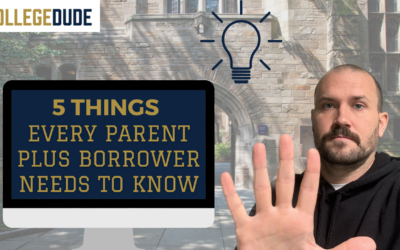529 plans are an ever-increasing way for families to save for their children’s education. As mentioned in prior posts, these tax-advantaged investment accounts allow families to set aside funds for college or other qualified education expenses, with a potential state-tax deduction, tax-free growth and tax-free withdrawals. However, many families are concerned about how 529 plans will impact their child’s eligibility for financial aid. So, does a 529 plan affect financial aid? In this post, we’ll explore the impact of 529 plans on financial aid. You’ll also learn tips on how families can minimize the impact on their child’s financial aid award.
How Financial Aid Works
As we’ve done on prior posts, there have been explanations of how financial aid is awarded. Financial aid can come in the form of grants, scholarships, work-study programs, and loans. This is typically offered through the college, federal & state government, and private institutions and organizations.
To determine a student’s eligibility for financial aid, the federal government uses a formula called the Expected Family Contribution (EFC). When determining how much a family is expected to contribute to their child’s education, the EFC considers the family’s income, assets, and family size. The lower a family’s EFC, the more financial aid their child is likely to receive.
Impact of 529 Plans on Financial Aid
Although a named beneficiary exists, 529 plans are considered an asset of the account owner, who is typically the parent. When calculating a family’s EFC, the calculation includes the value of a 529 plan. This means that having a 529 plan can reduce a student’s eligibility for need-based financial aid.
The impact of a 529 plan on financial aid is relatively small compared to other assets. The federal government only considers a maximum of 5.64% of a parent’s assets as part of the EFC calculation. If a family has $10,000 in a 529 plan, their EFC would only include $564 of that amount. Contrast that with parental income, which is assessed on a bracketed scale between 22-47%.
Furthermore, financial aid calculations do not include 529 plans in the income calculation. This means that if a family withdraws money from a 529 plan to pay for qualified education expenses, it will not count as income on the Free Application for Federal Student Aid (FAFSA).
Tips for Minimizing the Impact of 529 Plans on Financial Aid
While 529 plans do have an impact on financial aid, there are several strategies that families can use to minimize the impact and maximize their child’s eligibility for financial aid. Here are a few tips to keep in mind:
- Consider a grandparent-owned 529 plan. Grandparent owned 529 plans are not reportable on the FAFSA as assets, thus removing the worry of the 5.64% assessment. But there is a potential drawback. Distributions taken from these accounts would count as “income of the student” in the year in which the distribution takes place. Since the FAFSA has a “prior, prior” year reporting schedule, a freshman year distribution would have an effect for the student in his/her junior year. This is changing though, with the FAFSA Simplification Act. Assuming no changes, once fully enacted, grandparent-owned 529 plans are invisible to the FAFSA.
- Use 529 plans for qualified education expenses. The best way to maximize the tax benefits of a 529 plan and minimize the impact on financial aid is to use the funds for qualified education expenses. This includes tuition, fees, books, supplies, and equipment required for enrollment or attendance at an eligible educational institution. If a family uses the funds for non-qualified expenses, they will be subject to income tax and a 10% penalty on the earnings portion of the withdrawal. There have been some changes though, and a big one being the Roth IRA Roll Over option.
- Consider alternative college savings strategies. Families who are concerned about the impact of a 529 plan on financial aid may want to consider alternative college savings strategies. For example, a custodial account can be established for a child with less impact on financial aid eligibility.
- Consult with a financial advisor. Finally, families who are concerned about the impact of a 529 plan on financial aid should consult with a financial advisor. A financial advisor can help families evaluate their options and develop a college savings strategy that balances their need for financial aid with their desire to save for their child’s education.
Conclusion
529 plans are a popular way for families to save for their children’s education. But does a 529 plan affect financial aid? Many families are concerned about how they will impact their child’s eligibility for financial aid. Compared to other assets, 529 plans have a relatively small impact on financial aid. By using strategic ownership strategies, focusing on qualified education expenses, and considering alternative college savings strategies, families can minimize the impact of 529 plans on financial aid eligibility. It’s important to consult with a financial advisor to develop a college strategy that fits your family’s goals and needs.





